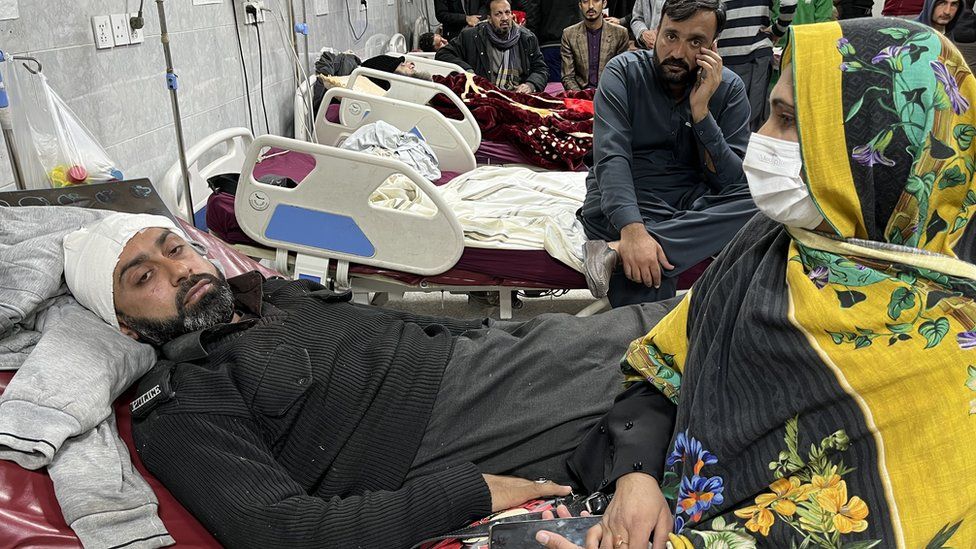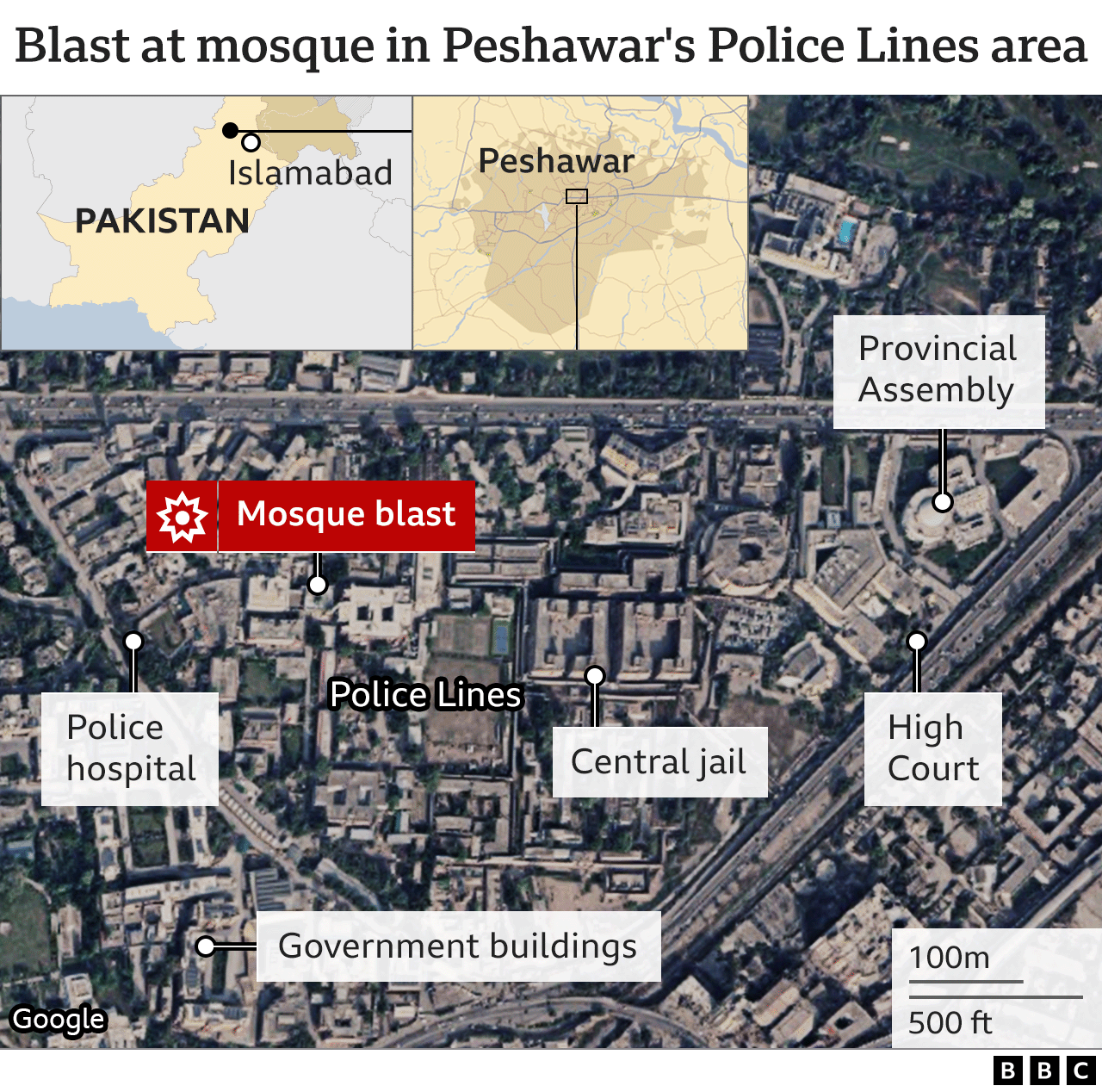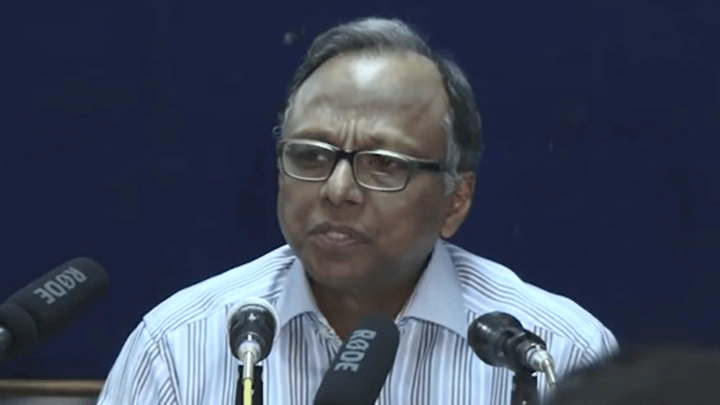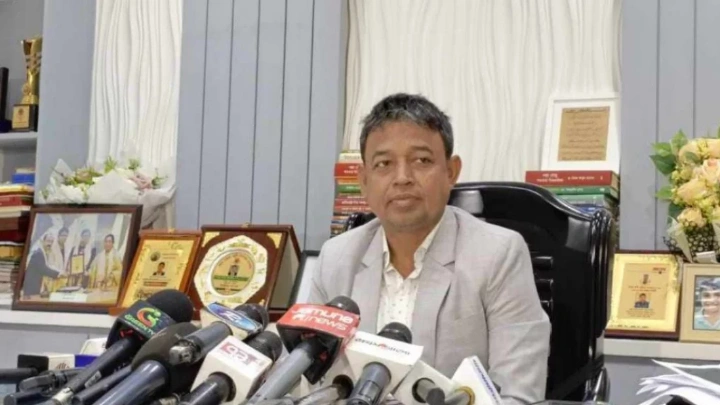Pakistan mosque blast: More confirmed dead in marathon search of rubble
BBC || Shining BD
The death toll has risen to 92 people after a mosque suicide bombing which targeted policemen in the city of Peshawar in Pakistan.
The mosque is within a high-security zone and an investigation is under way into how the bomber got in.
The attack, one of Pakistan's bloodiest in years, has left scores more injured.
The Pakistani Taliban officially denied involvement but a commander of what the militants say is a splinter faction from the group had earlier claimed it.
In the past the Pakistani Taliban have refrained from claiming some attacks on mosques, schools or markets because they say they are at war with security forces and not the Pakistani people, but many doubt their denials.
On Tuesday, rescuers scrambled to retrieve worshippers buried in the rubble, pulling out nine people alive but recovering a further 24 bodies. No-one remained trapped, local officials said.
"Terrorists want to create fear by targeting those who perform the duty of defending Pakistan," said PM Shehbaz Sharif. He declared a national day of mourning.
The BBC saw ambulances racing in and out of the compound every few minutes.
A hospital spokesman confirmed that more than 100 remained wounded, some of them critical. Meanwhile, funerals have been carried out for more than 20 police officers, their coffins draped with the Pakistan flag.
The bodies of the dead have started to be returned to their families.
Between 300 and 400 police officers had been in the area at the time, Peshawar police chief Muhammad Ijaz Khan earlier told local media.
The mosque is in one of the most heavily controlled areas of the city, which includes police headquarters and intelligence and counter-terrorism bureaus. On Tuesday, local media lined the road outside the gates - the closest that security would allow.
Mr Sharif said those behind the attack had "nothing to do with Islam". He added: "The entire nation is standing united against the menace of terrorism."
The Pakistan Taliban - a group separate to Afghanistan's Taliban government - ended a ceasefire in November, and violence has been on the rise in the country since.
In December it targeted a police station - like Peshawar, in the north-west of the country - leading to the deaths of 33 militants.
Monday's blast took place around 13:30 (08:30 GMT) during afternoon prayers in the north-western city, which is near the country's border with Afghanistan.
An entire wall of the building collapsed, and the mosque was covered in bricks and debris as people clambered over the rubble to escape.
Hours after the blast, BBC News witnessed a facility full of the injured, many still wearing their police uniforms.
Some were covered in burns cream, their skin red with burns from the explosion. Others have broken bones from being hit by falling rubble.
One man said he still could not hear because of the sound of the blast. Another man said he had been rescued after being trapped under the rubble for almost an hour.
The prime minister travelled to Peshawar on an emergency visit, where he will be briefed by local officials and visit those wounded by the blast.

UN Secretary General António Guterres condemned the attack, with his spokeswoman saying: "It is particularly abhorrent that such an attack occurred at a place of worship."
The attack on the mosque took place at the start of a key week for Pakistani diplomacy.
On Monday, the president of the United Arab Emirates, Mohamed bin Zayed Al Nahyan, was due to visit Islamabad - although the trip was cancelled at the last minute because of bad weather.
On Tuesday, an International Monetary Fund delegation is meant to visit Pakistan as part of the process to unlock a bailout loan to prevent the country from defaulting.
Last March, Peshawar was the target of another bombing, which killed dozens in a Shia Muslim mosque in the majority Sunni Muslim country.
In the capital Islamabad, police issued a high alert and said security at all entry and exit points to the city had been increased.

Shining BD
























